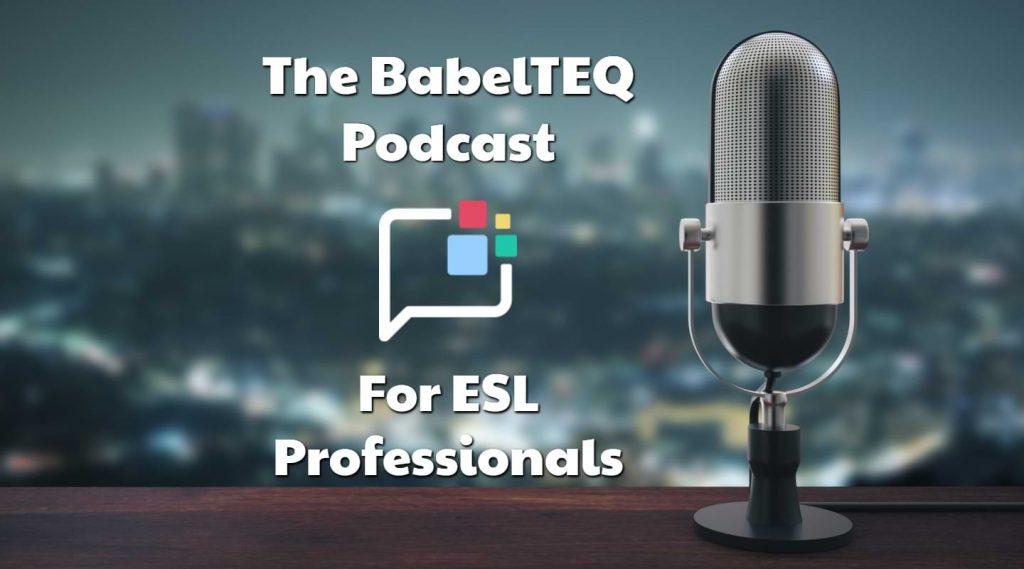Almost all school age children in developed countries are exposed to the English language these days. Learning the global language is no longer an option, it is a MUST.
Across Europe, 91% of elementary and secondary school children are studying English.
In Japan, since 2020, English has been a mandatory subject, starting in third grade.
In South America, the Middle East, in fact most of the world, people gain their first exposure to the English language at school.

And of course, parents everywhere want their children to do well in this essential skill in order to get a head start in life.
This presents a great opportunity for independent online ESL teachers.
Whether you are a “test preparation” instructor, or you have a more innovative niche, like teaching English through video games, there are millions of families willing to pay you well for your expertise.
To better understand what teaching English to High School Students is all about, I conducted an interview with ESL teacher, Luna Checchini.
Table of Contents
What’s your professional background, where are you now and what are you doing currently?
I’ve been teaching ESL and Italian to foreigners for over 10 years; after completing my CELTA degree in Canada, I worked in the UK, the USA and Italy before opening my own language school with two colleagues of mine. I managed it and taught there for 6 years, and I eventually decided to quit and teach exclusively online, as a freelance teacher.
Can you explain your teaching niche and how you decided on doing that?
I thought about who my ideal student was: over the years, I had taught all kinds of students – 3 to 80 years old, businesspeople and travelers, etc., but who did I enjoy the most? Who gave me the strongest motivation? The answer was – high school students.
High school students are the most overlooked category of private students, at least in Italy: they don’t bring in “big money”, they’re generally not particularly motivated, adults don’t really care about their opinions. As a teacher, I found them challenging but also super motivating in the long run, because I see them blossoming and becoming aware of their potential and strengths.
How is teaching high school kids different to teaching adults? Do teenagers have any strengths or weaknesses compared to adults?
High school kids who come to me usually have a very clear goal, whether that is getting better grades, avoiding failing the current high school year, preparing for an exam etc. while adult students tend to be much more vague. Teenagers are often very opinionated, which makes it easier to have discussions (or arguments, why not!) in English to improve their fluency, but at the same time they might not be motivated or constant, so I need to become their personal assistant in addition to being their tutor.
Do you use your student’s native language to explain lesson points, or is it a total language immersion experience?
I mostly speak in Italian because they need it to understand the grammar points and feel at ease, and then we have some speaking practice in English too.
Teacherpreneur Marketing
ACADEMY
FACEBOOK GROUP
What kind of online tools do you use to teach your classes?
I have playlists of YouTube videos that I recorded using Prezi to explain the literature topics, then I use video conferencing tools for the 1:1 lessons (mostly Skype and Google Meet). I couldn’t live without Google Drive!! We work on docs, sheets, I prepare activities and quizzes using the forms and presentations… all of Drive is essential!
What is your marketing strategy for finding students? Do you conduct any kind of paid advertising?
Most of my students came to me through word-of-mouth. I have a profile on local freelance job boards (a local version of Fiverr), and I’m very active on social networks such as TikTok and Instagram. I have occasionally used paid advertising, but honestly, the flyer I have hanging on my apartment door got me more students than any other advertising!
I assume it is parents, rather than your students who pay for the lessons. How does that affect your business strategy? Do you make an effort to build rapport with them or involve them in the learning process?
That’s correct. My first contact is usually with the parent: we talk on the phone, I schedule an introduction meeting where both student and parent can get to know me and explain their needs, and only then I send the parent an email detailing the price and payment method, and asking them to fill in a form for invoicing details. When they fill in the form, I text them to schedule the lesson and after that I only keep in touch with the student, and occasionally send invoices and general feedback to the parent.
Are there any projects you are working on now? How can people connect with you to learn more about what you do?
I have started a podcast (in Italian) with one of my former students where we talk about everything connected to the teenagers’ world: school, parents-children relationship, teachers etc. and we also learn a few English words every week! It’s called Ex Teens and you can find it here: https://anchor.fm/ex-teens
You can also find me on my website: https://ripetizioni-inglese.it
Instagram: @lc_lunachecchini
TikTok: @lc_lunachecchini
Facebook: @literaturecoach
LinkedIn: lunachecchini
The author of this post lives in Japan with his wife and family. He has taught English part-time (online and off) for more than a decade. He is passionate about WordPress consulting, online marketing and using the power of the internet to help people achieve their dreams.
He thinks that until you’ve tried sashimi tuna with wasabi, soy sauce, hot sake and a cold beer chaser, you just haven’t lived.


